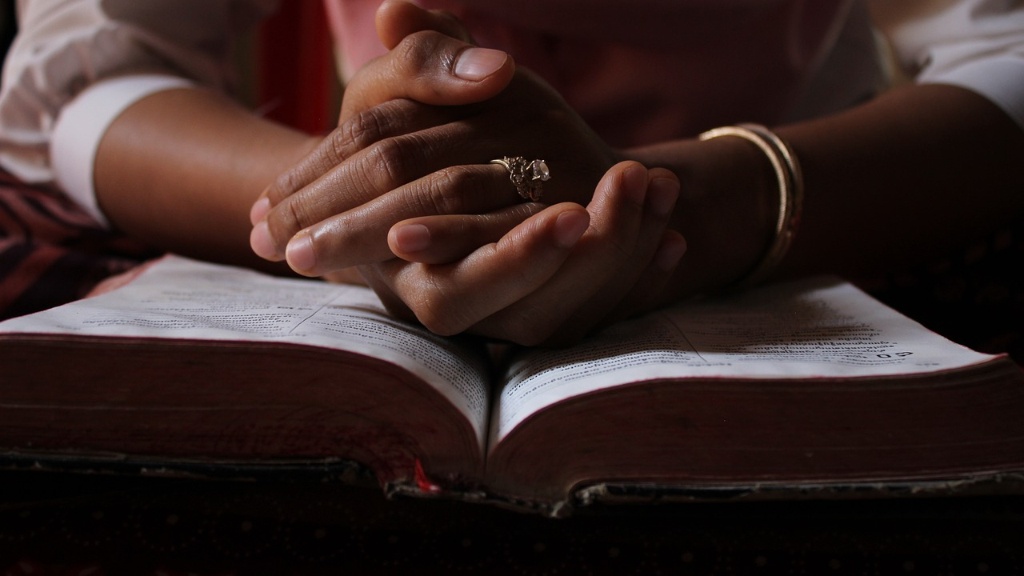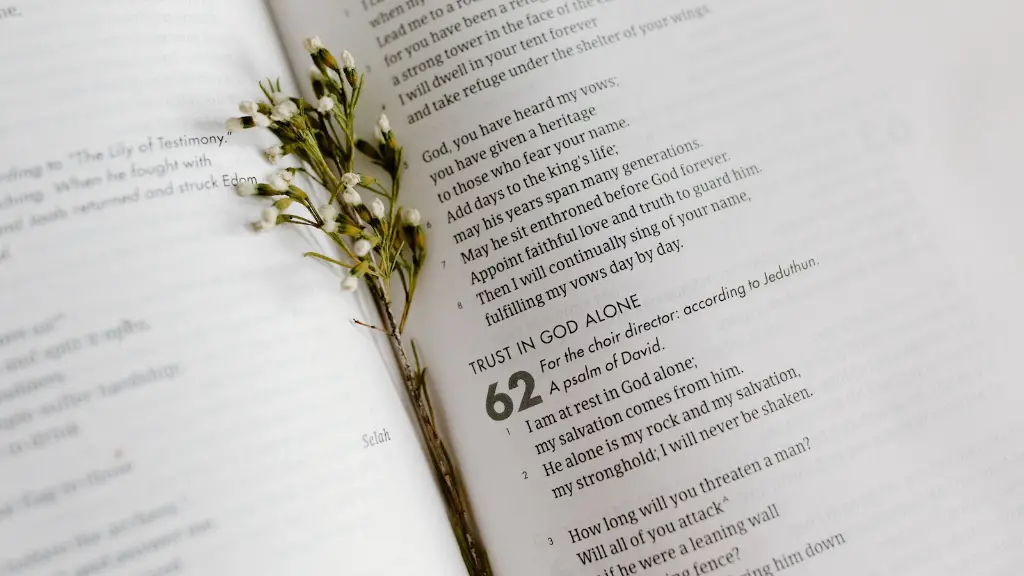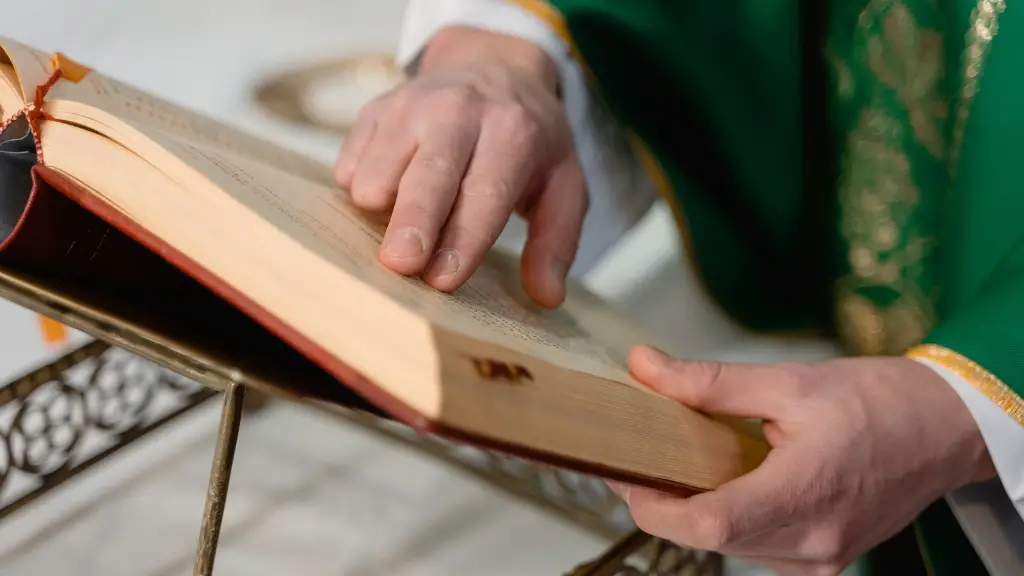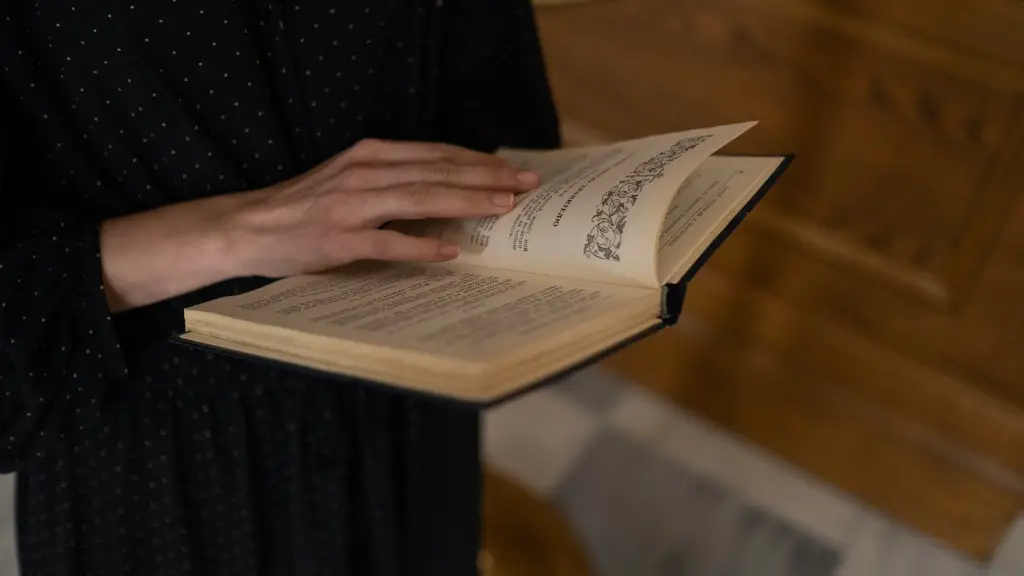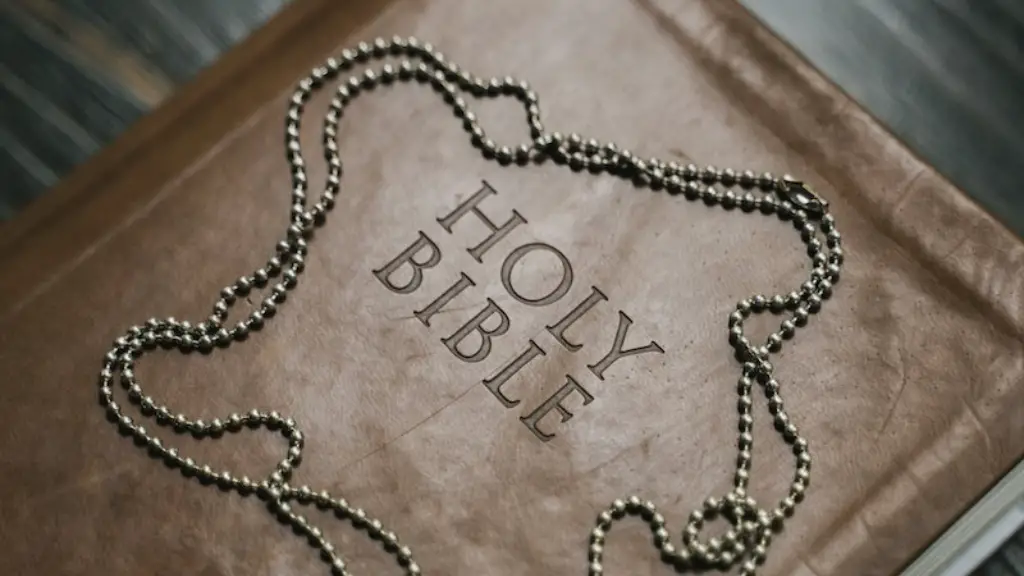The Last Supper, or sometimes known as the Lord’s Supper, is a significant part of Christianity. It is recorded in the Bible in all four Gospels and can be found in three books including Matthew, Mark, and Luke.
The Last Supper was Jesus’s final meal with his disciples before he was betrayed and crucified. According to the Bible, Jesus gathered his disciples and asked them to follow him to the Upper Room of a house. It was here where he enacted a new Covenant where he showed his disciples that he was to be their Lord and King.
The narrative of Jesus’ Last Supper includes familiar stories for Christians such as Jesus washing his disciples’ feet, healing a servant’s ear, and instituting the practice of Communion. During the Last Supper, Jesus identified Judas as the one who would betray him and then, after supper, went to the Garden of Gethsemane to pray – where he was later arrested and taken away by the authorities.
Matthew 26:17-30 reads: On the first day of the Festival of Unleavened Bread, the disciples came to Jesus and asked, “Where do you want us to prepare for you to eat the Passover?” Jesus replied, “Go into the city to a certain man and tell him, ‘The Teacher says: My time is near. I am celebrating the Passover with my disciples at your house.’” So the disciples did as Jesus had directed them and prepared the Passover.
At the Last Supper, bread and wine were transformed by Jesus into his body and blood according to each of the Gospels’ interpretation. Jesus said ‘This is My Body’ and ‘This is My Blood of the covenant’ and commanded the disciples that they should do this in his memory.
This resonates with everyday life as many Christians around the world re-enact the apostles’ actions by participating in the Eucharist, or Communion – a remembrance of Jesus’ suffering and death. During the Eucharist, bread is broken, blessed and shared, while the celebrant blesses wine in a shared cup.
This practise can be traced back to Jesus’ Final Hours when He “took bread, and after giving thanks He broke it and gave it to them” (Luke 22:19). Jesus then offered his disciples a cup of wine, blessing it and saying that it was his blood of the new covenant. Jesus then instructed the apostles to “Do this for my remembrance” (Luke 22:19), which is the origin of the Eucharist.
The significance of Jesus’ presence at the Last Supper is its emphasis on thanksgiving, through which believers are linked to the story of Jesus’ sacrifice and God’s care and love. To this day, the Last Supper serves as a reminder of Jesus’ commitment to His disciples and to sharing the story of his grace, which inspired a new beginning for all believers.
The Eucharist and Passover
The Last Supper is recognised by Christians to be a part of both the Passover meal and The Eucharist. Passover is a Jewish festival celebrated by Jewish people each year to mark the death of their first-born son by the hand of God. It is believed to be the same meal Jesus shared with his disciples before his arrest.
For Jews, Passover is about remembering the time when the Israelites were freed from slavery in Egypt, which marks the start of the Jewish nation and all its laws and holy traditions. Christians regard Passover, and the Last Supper, as a reference to the salvation, freedom and restoration experienced in and through Jesus and the sacrificial death He paid.
The Eucharist is a ritual important to Christians in which bread and wine are consecrated and shared, representing the body and blood of Jesus. As mentioned, Jesus directed his disciples to establish this ritual, saying ‘Do this, in remembrance of me” (Luke 22:19). This ritual, known to most as Communion, is taken as a representation of Jesus’ death, as well as a reminder of his resurrection. Through ingesting the bread and wine, Christians also “participate in and receive the grace of Christ”.
What Occurred During The Last Supper?
During the Last Supper, Jesus shared with His disciples the ritual of a footwashing ceremony, a symbol of humility and submission, and gave it a strong moral significance. Jesus also made His announcement that one of them would betray him. This announcement was particularly felt when Jesus took a bread of unleavened bread and instructed them to “Take and eat, for I tell you that from now on I will not eat this Passover meal until it is fulfilled in the kingdom of God” (Luke: 22:14-17).
Now, the Last Supper is most famously remembered for the partaking of bread and wine. According to the New Testament Gospels, Jesus referred to the bread as “my body” and the wine as “my blood of the covenant” to His disciples. By partaking in the bread and wine, Jesus’ disciples were meant to “join in His ultimate self-sacrifice”. It is believed that the Last Supper is “the institution of the Eucharist as a memorial of His death”.
The Gospel Of John: An Unrecorded Last Supper
The Gospel of John does not include an account of the Last Supper. It does provide insight into Jesus’ last words with his disciples. In John 13:31-35 Jesus says, “Now the Son of Man is glorified, and God is glorified in him. If God is glorified in him, God will glorify the Son in himself, and will glorify him at once. My children, I will be with you only a little longer. You will look for me, and just as I told the Jews, so I tell you now: Where I am going, you cannot come. “A new command I give you: Love one another. As I have loved you, so you must love one another. By this everyone will know that you are my disciples, if you love one another.”
Steve Schratter from Leadership Transformations writes in his blog entry, “Much like the ancient Passover, when God’s people remembered not just their escape from Egypt, Jesus used this powerful time together to remind His disciples that He was about to make a sacrificial act of love to save them and the world from death and captivity to sin.”
Where Is The Last Supper In The Bible?
The Last Supper took place at the upper room of a house in Jerusalem when Jesus gathered his disciples to enact the new covenant. It is mentioned in the Bible four times – in Matthew 26:17-30, Mark 14:12-26, Luke 22:7-37, and John 13:21. Each of the Gospels describe the event in slightly different ways, making it a powerful and meaningful narrative in Christianity.
In Mark’s account, he explains how Jesus prepared a Passover meal according to Jewish tradition, while Luke’s account mentions Jesus’ warning that a disciple would betray him and how Judas agreed to do so in exchange for money.
The Impact Of The Last Supper
The Last Supper is significant to Christians worldwide, not just for its powerful reminder of Jesus’ death, but also its reminder of Jesus’ words – “Love one another”. The act of the Eucharist, or Communion, was started at the Last Supper, sacrificing oneself for the greater good – a reminder to keep on with Jesus’ legacy of faith, humility and love.
Dr. Carol Zaleski, professor at Harvard University, writes in an article for Time Magazine, that “the political and cultural implications of the Last Supper extend far beyond the personal bond of the individual Christian believer to and with Jesus. While the focus of the meal is upon the shared life of Jesus and his friends, and especially upon the very special relationship they enjoyed, the consequential implications of his death and the outpouring of the Spirit at Pentecost are far-reaching and long-lasting.”
Painting and drawings of the Last Supper were, and still are, made to remember the story and its impact. Leonardo da Vinci’s painting of the scene “Carib Jesus institution” is perhaps one of the most famous renditions of the moment and has widely been used to teaching children of their faith.
The Last Supper And Modern Practices
At the beginning of the Christian liturgy, the Eucharist is typically celebrated to bring together the community of believers to remember what Jesus had done for them. By partaking of the bread and wine, Christians are reminded of Jesus’ body and blood, and the new covenant He established through His death.
In Episcopal churches, the priest says, “We come to make the memorial of our obedience and thanksgiving, according to his command,” taking a cup of wine. Episcopalians tend to follow the Anglican or Protestant Church’s understanding of the Lord’s Supper, where the main emphasis is on “the general gathering of the faithful as a congregation of believers.”
The sharing of both the bread and cup of wine at the Lord’s Table is a testament to Jesus’ death and the new covenant He has given us. Just as Jesus did during the Last Supper, Christians break the bread and pour out the wine in remembrance of the Lord’s death. The Eucharist signifies that Jesus was willing to give up His life for His people; it is a sign of His covenant and a reminder of His presence in the body of Christ.
Conclusion
The Last Supper is an incredibly important event in Christianity, recorded in the Bible in four books – Matthew, Mark, Luke and John – and recounted in paintings and drawings throughout history. At this pivotal moment, Jesus created a new covenant between him and his disciples, and instituted Communion as a remembrance of His grace and death. Jesus also asked his disciples to “love one another”, and this is still used as a reminder of his mission to love and serve others.
